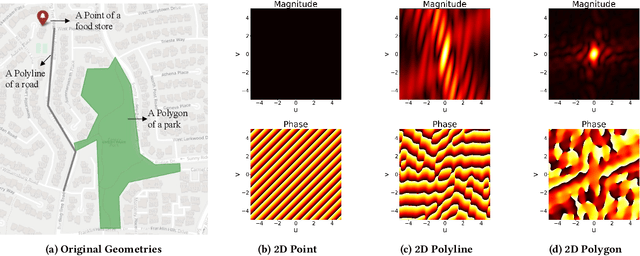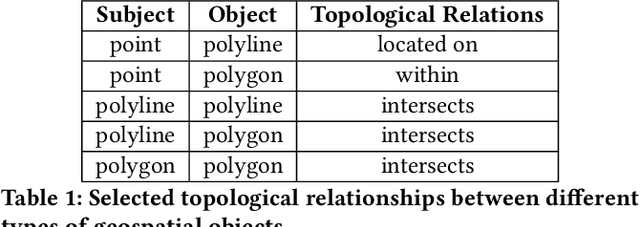Poly2Vec: Polymorphic Encoding of Geospatial Objects for Spatial Reasoning with Deep Neural Networks
Paper and Code
Aug 27, 2024



Encoding geospatial data is crucial for enabling machine learning (ML) models to perform tasks that require spatial reasoning, such as identifying the topological relationships between two different geospatial objects. However, existing encoding methods are limited as they are typically customized to handle only specific types of spatial data, which impedes their applicability across different downstream tasks where multiple data types coexist. To address this, we introduce Poly2Vec, an encoding framework that unifies the modeling of different geospatial objects, including 2D points, polylines, and polygons, irrespective of the downstream task. We leverage the power of the 2D Fourier transform to encode useful spatial properties, such as shape and location, from geospatial objects into fixed-length vectors. These vectors are then inputted into neural network models for spatial reasoning tasks.This unified approach eliminates the need to develop and train separate models for each distinct spatial type. We evaluate Poly2Vec on both synthetic and real datasets of mixed geometry types and verify its consistent performance across several downstream spatial reasoning tasks.
 Add to Chrome
Add to Chrome Add to Firefox
Add to Firefox Add to Edge
Add to Edge